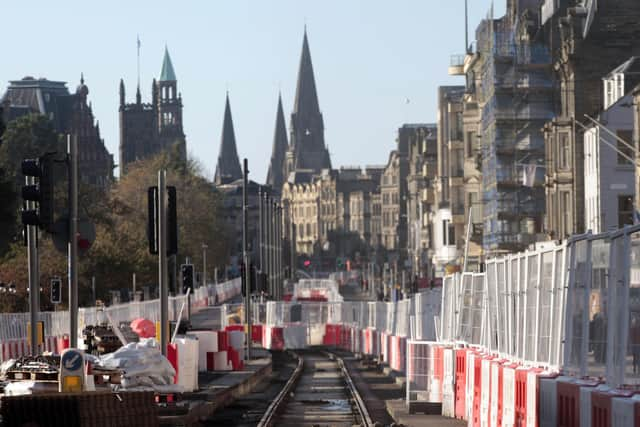Edinburgh Tram Inquiry report must lead to changes if faith in government is to be restored – Scotsman comment
To some, the events that led to the Edinburgh Tram Inquiry may feel like ancient history. However, Lord Hardie’s report, for all that it took longer to produce than the first tram line itself, contains findings that are most relevant to Scotland today.
The cost of the line – now estimated at £836 million – was nearly £300 million more than the budget for a much longer route, including the newly built link to Newhaven, and possibly also a loop to Granton. Scotland’s capital city ended up with a much shorter tram ‘network’ hardly worthy of the name at a vastly increased cost and three years late.
Advertisement
Hide AdAdvertisement
Hide AdHardie puts the blame on the arms-length company Transport Initiatives Edinburgh (Tie), Edinburgh council and Scottish ministers, saying their “acts or omissions were principally responsible”. A key moment appears to have taken place in June 2007, a month after the SNP entered government for the first time, when the then Finance Secretary John Swinney told Transport Scotland officials to reduce their involvement. They were clearly initially unhappy but failed to press the matter.
However, the sidelining of the government’s own experts was not the only reason for the disaster that followed. Tie was supposed to be at “arms-length” but the distance between the firm and the elected representatives in charge of the public purse was far too great, leading to insufficient scrutiny and an ineffective command and control system.
And that scrutiny was sorely needed. Astonishingly, the report notes a lack of experience within Tie “of delivering a tram project”, with the use of contractors to make up for the shortfall in knowledge. The company also failed “to work collaboratively” with Edinburgh Council and failed to “report accurately on progress”. Meanwhile, council officials failed to properly monitor what was going on.
Hardie bemoaned a “litany of avoidable failures on the parts of several parties”, “poor management” and even the “abdication of responsibility on a large scale”. And he was so outraged that his report even suggests a new law that would make company employees and council officials criminally liable for failing to provide accurate and relevant information in similar circumstances.
Another “litany of avoidable failures” on the Clyde, where two under-construction ferries are years late and more than three times over budget, and the fiasco of the failed deposit return scheme provide evidence that bad government is very much still with us.


The role played by civil servants in the tram scandal suggests this is more than just an SNP problem. Officials must realise they have a vital part to play in ensuring good government and that, sometimes, this means standing up to their political masters. Meanwhile, ministers who demand obedience are actually doing themselves and their country a disservice.
It is hard not to despair when governments seem incapable of ensuring large important projects like the tram link are built without wasting vast sums of public money. Hundreds of millions of pounds were spent that could otherwise have been used to employ more NHS staff and police officers, fix crumbling school buildings, or, indeed, build more ferries.
But such a loss of confidence in government to deliver may actually be part of the problem. Arms-length companies are often seen as a way to bring private sector nous to public projects. However, as Hardie notes, the creation of Tie meant Edinburgh council “handed over its powers but retained all the financial responsibility”, a situation he described as “the worst of all worlds” for the authority.
Hardie’s 24 recommendations should be implemented in full. Restoring faith in the power of democracy to change the country for the better may depend upon it.
Comments
Want to join the conversation? Please or to comment on this article.
